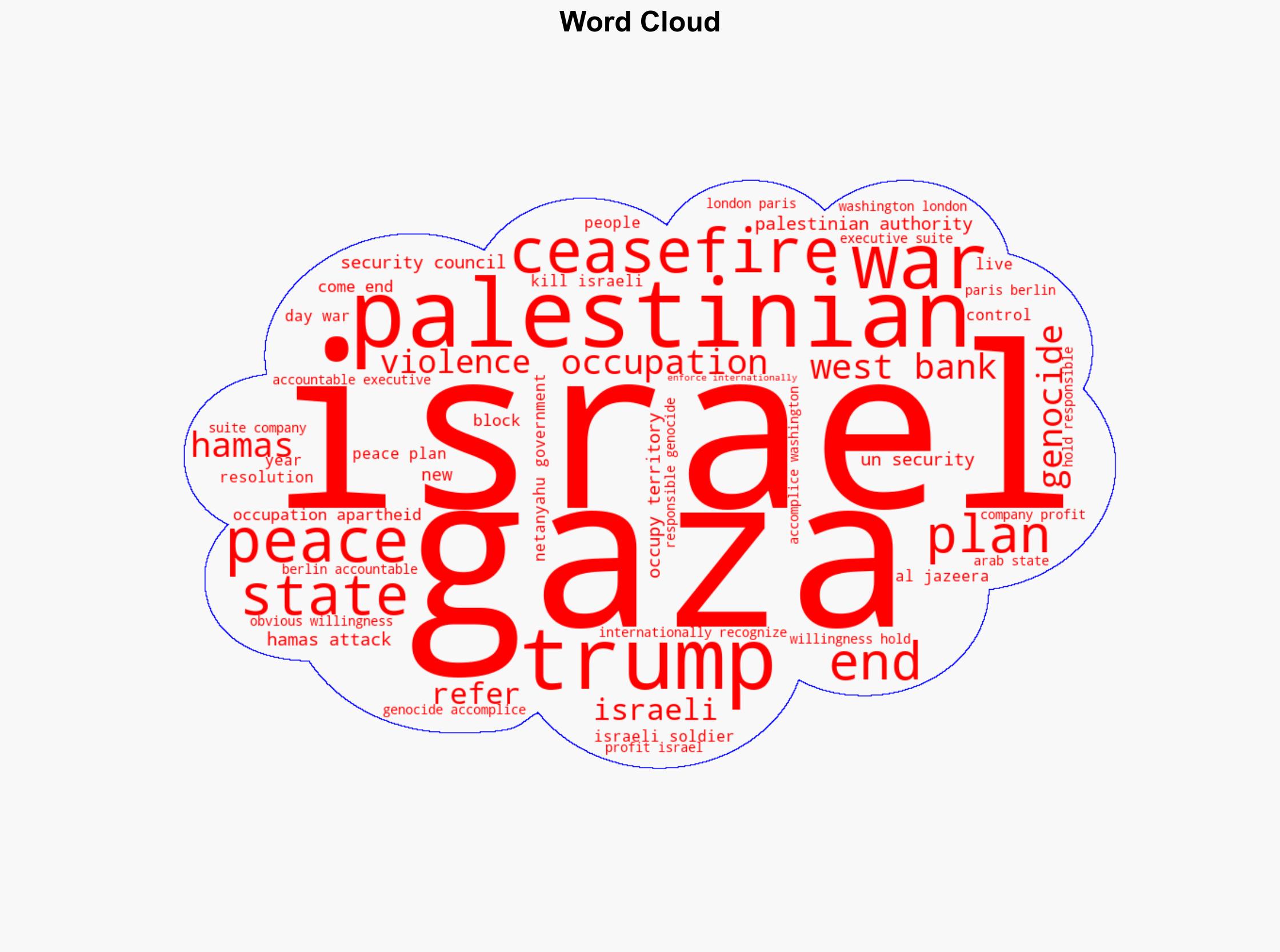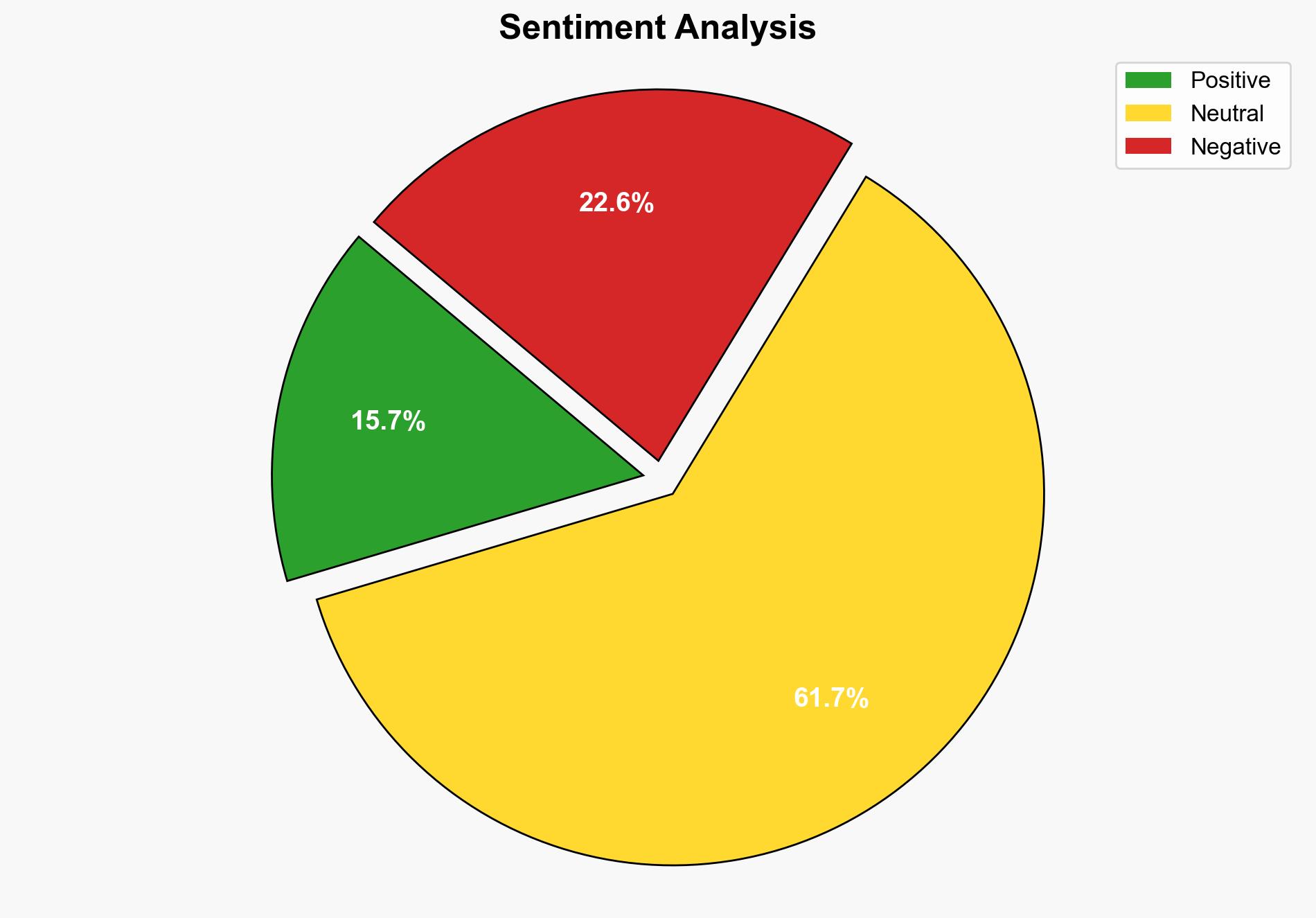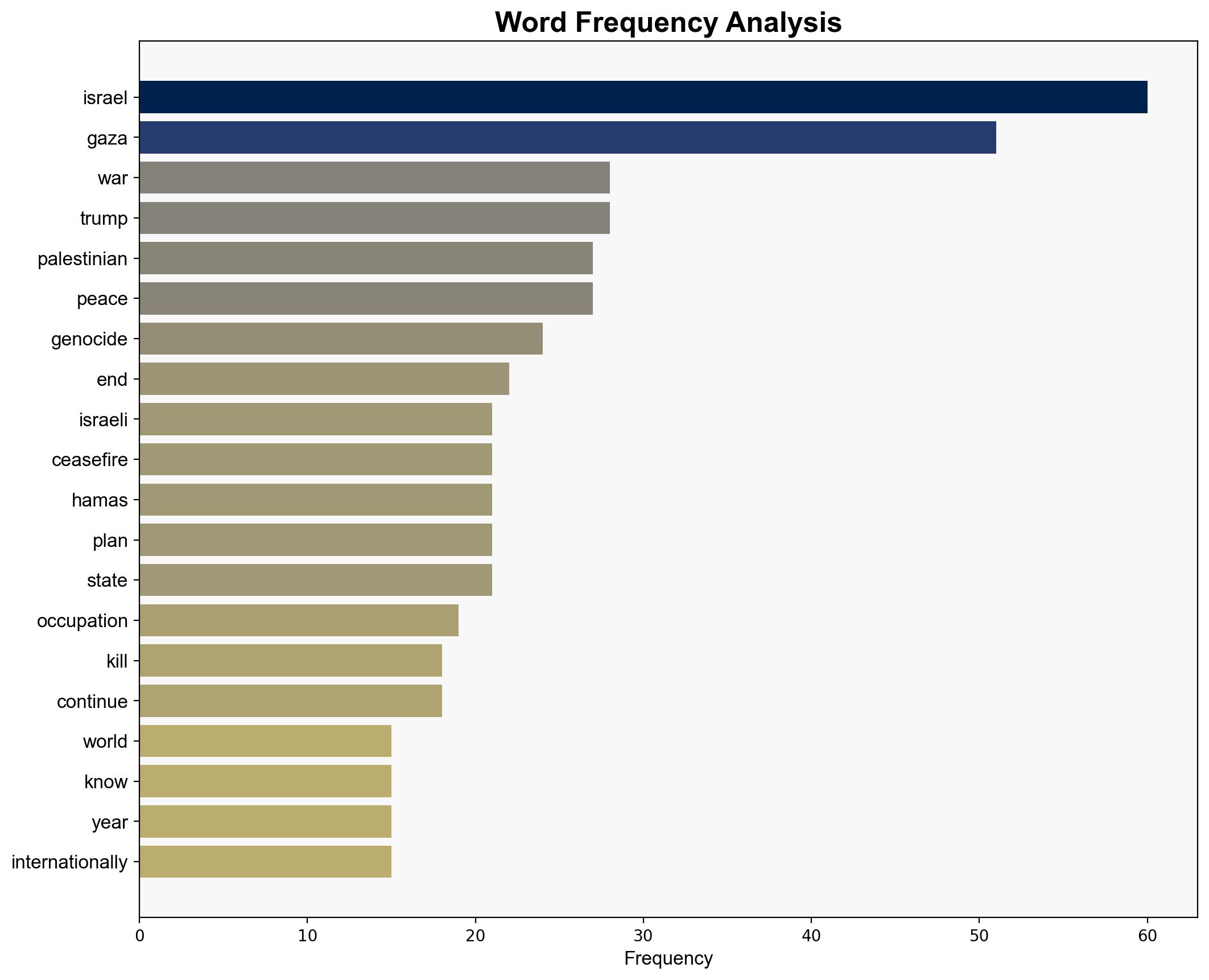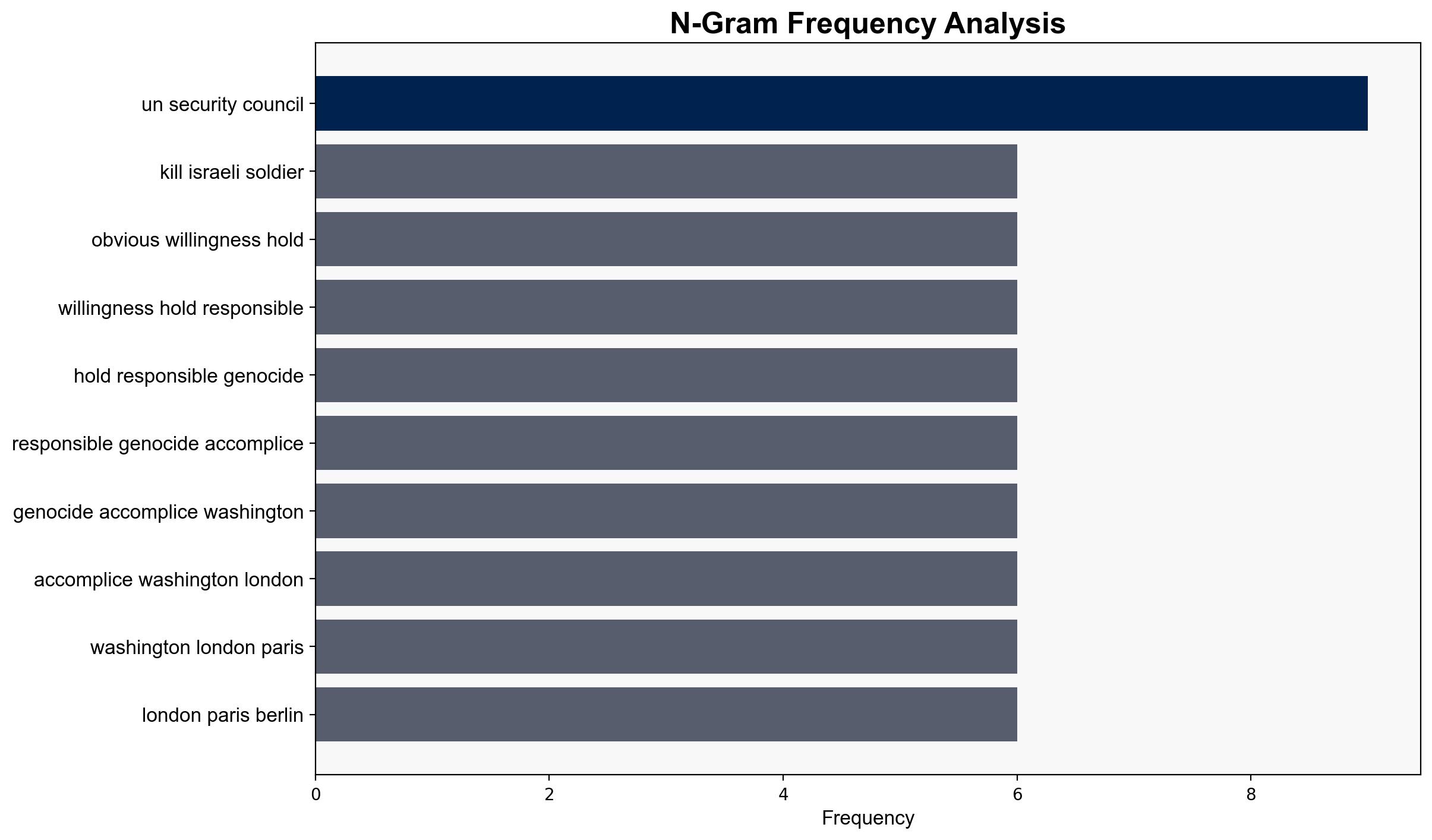Gaza The Peace of the Genocide Alliance – Common Dreams
Published on: 2025-10-14
Intelligence Report: Gaza The Peace of the Genocide Alliance – Common Dreams
1. BLUF (Bottom Line Up Front)
The most supported hypothesis is that the ongoing conflict in Gaza is unlikely to reach a sustainable peace due to entrenched political interests and external pressures. Confidence level: Moderate. Recommended action: Engage in multilateral diplomatic efforts to address humanitarian needs and reduce external military support to conflicting parties.
2. Competing Hypotheses
Hypothesis 1: The conflict in Gaza will continue indefinitely due to the inability of involved parties to reach a sustainable ceasefire, exacerbated by external influences and political agendas.
Hypothesis 2: A ceasefire agreement will be reached, leading to a temporary reduction in violence, but underlying issues will remain unresolved, resulting in future escalations.
Using ACH 2.0, Hypothesis 1 is better supported by the evidence of ongoing military actions, political stalemates, and external influences such as U.S. and regional politics.
3. Key Assumptions and Red Flags
– Assumptions: The political will exists among international actors to enforce a ceasefire; Hamas and Israeli leadership are willing to compromise.
– Red Flags: Inconsistent data on the effectiveness of international diplomatic efforts; potential bias in reporting on the motivations of key actors.
– Blind Spots: Lack of detailed information on internal political dynamics within Hamas and the Israeli government.
4. Implications and Strategic Risks
– Continued conflict risks regional instability, potentially drawing in neighboring countries.
– Economic implications include disruption of trade routes and increased humanitarian aid requirements.
– Geopolitical risks involve strained relations between Western countries and Middle Eastern allies.
– Psychological impacts include increased radicalization and recruitment by extremist groups.
5. Recommendations and Outlook
- Best Case: Multilateral diplomatic intervention leads to a sustainable ceasefire and humanitarian relief.
- Worst Case: Escalation into a broader regional conflict involving multiple state actors.
- Most Likely: Continued sporadic violence with intermittent ceasefires, requiring ongoing international mediation.
- Action: Increase diplomatic engagement with regional powers and international organizations to facilitate dialogue and humanitarian aid.
6. Key Individuals and Entities
– Benjamin Netanyahu
– Ismail Haniyya
– Donald Trump
– Mahmoud Abbas
– Tucker Carlson
– Marjorie Taylor Greene
7. Thematic Tags
national security threats, regional focus, geopolitical stability, humanitarian crisis




